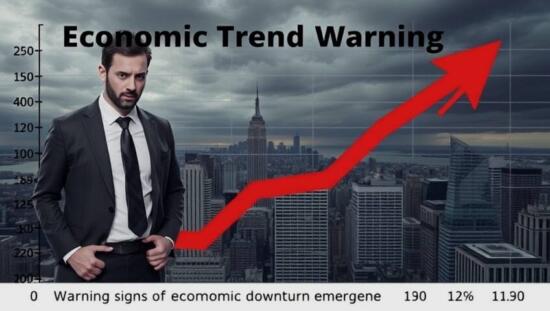Clemens Fuest, the President of the Ifo Institute, warns of a trend change in economic policy. It is particularly important to promote investments, increase efficiency, and adapt tax and transfer systems, he said on Monday at the Munich Economic Debates, and proposed a “Growth Agenda 2030”.
“Germany is facing enormous challenges due to new geopolitical risks, the progressing climate change, and a lack of economic dynamics. Now, many topics need to be addressed in parallel,” Fuest said.
Germany is in a problematic economic situation, particularly with regard to the shrinking corporate value added, the decline in working hours per employee, and the decline in corporate investments, which are significantly below the 2019 value.
According to Fuest, to make Germany successful again, progress is needed in adapting to climate change while increasing the energy supply. Germany should achieve significant productivity gains through the application of new technologies, such as artificial intelligence, in the state and in companies.
A massive structural change to more value creation in medium-sized companies, hidden champions, and successful start-ups is needed to compensate for the decline in the automotive industry and energy-intensive industrial companies, the ifo-chief urged. An increased influx of skilled workers and an extension of working hours per employee should stabilize the labor market.
Finally, Germany should be less vulnerable to changes in the geopolitical situation through a deeper European internal market, new trade agreements, and a better defense capability, Fuest said. From this target image, the need for a significant change in economic policy emerges: a realignment of government expenditures towards investments in defense, education, climate protection, and infrastructure, and away from non-targeted and employment-reducing social transfers, subsidies, and other non-priority government expenditures.
A new energy policy is needed, in which climate goals are achieved through market mechanisms, and in which nuclear energy is used again, the economist said. A radical reduction of bureaucracy, also through the abolition of failed regulations, is necessary, Fuest said. In addition, a tax system is needed that relieves work and investment and, at the same time, burdens consumption and real estate more strongly.
Furthermore, according to Fuest, an own agenda for more innovations and start-ups is required, as well as a deepening of the European internal market and new free trade agreements.
As an example of dealing with geopolitical challenges, Fuest cited the Israeli economy. There, the high war costs are financed with a mix of increased new borrowing, an increase in the value-added tax, and the reduction of other expenditures. Despite the constant economic and security policy crises, it has been possible in Israel to limit the state debt, invest in education, and build one of the world’s most successful start-up structures.





